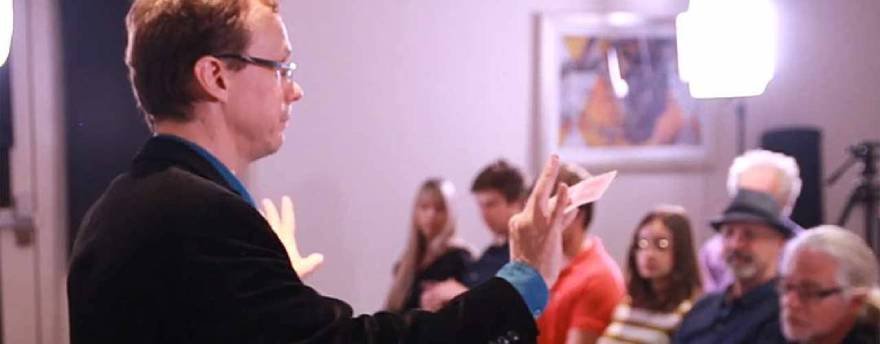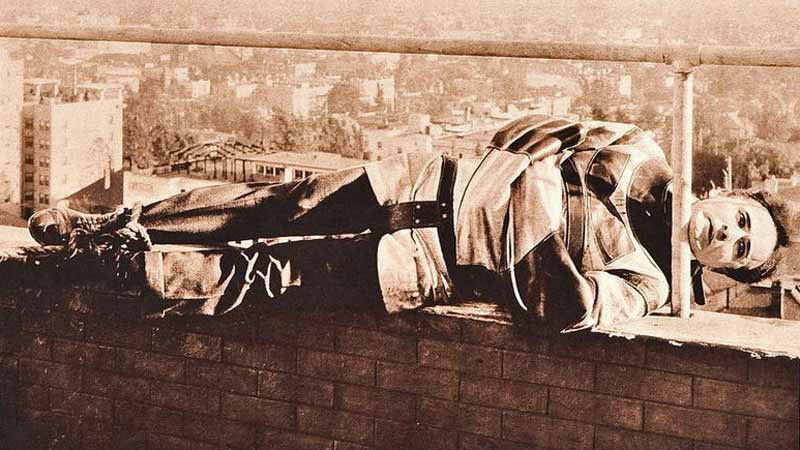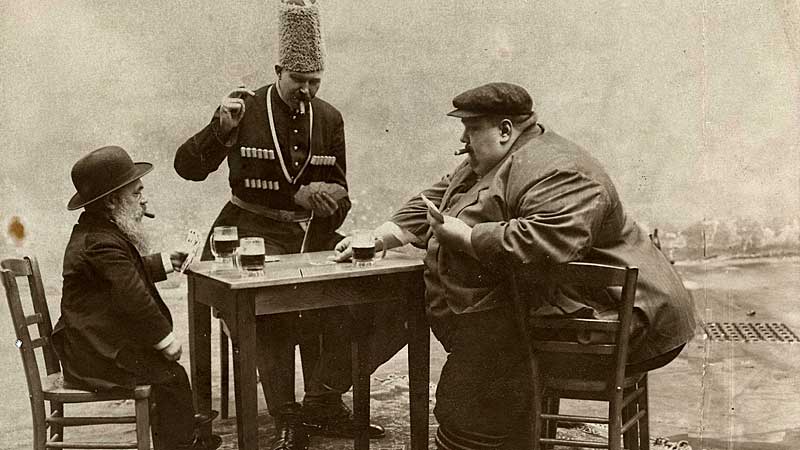Bryce Kuhlman's "Turbocharge your website to make it functional and profitable" Podcast Interview
by Roland Sarlot and Christian Painter

What We'll Explore
If your selling your skills as a performer, is your website qualifying and answering all your sales questions so your potential leads are only asking a few details and your price? If not, then your site may not be up to its potential. Bryce explains how you should strategize who your website is for, what the potential client (not you!) wants, what are their fears, and how to get them to pick up the phone and call you.
Who is Bryce Kuhlman?
Bryce Kuhlman is a software and electrical engineer creating tools and sites for large web businesses. Along the way in his 25 years of business, he has developed sites for some of the biggest names in magic, many in Las Vegas.
Running Time:
The following interview has been edited and condensed for clarity.
What you can do
You are welcome to share up to 500 words of the below transcript in a non-commercial purpose provided you credit and link back to our site like this: "The Magic Oracle Business Podcast".
The Interview
Roland Sarlot: On this episode of the Magic Business podcast, you'll hear this and more...
Bryce Kuhlman: I really think THAT is the question that nobody seems to ask, nobody thinks about, and it is the underlying foundation of everything.
Roland Sarlot: Welcome to the Magic Business podcast, where we share insightful and delightful inner secrets about the business of magic. This is where magic professionals present their real-life experiences and their most guarded secrets to help further your career in the magical arts. I'm your host, Roland Sarlot, in partnership with the MagicOracle.Club, where you can hear all of our Magic Business podcasts.
Bryce Kuhlman started performing magic professionally at ten years old, and at sixteen was making six figures in today's dollars. In college, he used magic to pay for his tuition. He then went to Motorola and started his career communicating with satellites. He left there to start multiple web businesses, and in the intervening twenty-five years, Bryce had developed software and websites for some of the biggest names in magic. Bryce is a wealth of information and knows more about computers and websites than anyone I know. I'm super excited to have him here on our program. Bryce, welcome to the "Magic Business" podcast.
Bryce Kuhlman: Hey, thanks for having me. It's going to be fun.
Roland Sarlot: Bryce, what are the secrets to a great website?
Bryce Kuhlman: Well, before we talk about the website, we have to talk about bigger things. And I think the biggest thing is that it's not about you. And I should say before we get into this, we should qualify a little bit that what we're talking about today is websites and sales and that sort of thing for somebody who's booking gigs. I don't care whether they're children's parties or corporate. It doesn't matter, but this is not... The answers are very different if you're building a website, if you're doing your own show in your own venue. So, with that being said, if you're being hired, if you're getting booked, it's not about you and your magic. It's about the people who are trying to hire you and what they need and what they need to hear and see to make a decision to pick up the phone and call you. That's what it's about. It's not about your website. I mean the websites are just to support that goal basically.
Roland Sarlot: And how do I know what they need to know?
Bryce Kuhlman: If you're paying attention, and again let's assume you've done some gigs, and in order to book those gigs, you've had to be on the phone with people. People have called you however they got your name, number, and you've had to close the deal. And if you're paying attention just like if you're paying attention in your own show and listening to the audience, you should be listening to what's coming out of their mouth. And so, that's just level one is to just pay attention. What questions are you being asked on the phone? Now there's a dirty side to this, which is of course, a lot of people... Well first of all, a lot of people are going to ask about price upfront, which is the last question you want to answer, though this is just a sales thing, the last thing you want to talk about is money. You want to make sure that they want you really, really bad before you ever mention numbers. But the other thing is you have to be prepared, and you have to be thinking about all of the questions that they're not asking because they're afraid, because they might feel silly, because they might feel a little pushy. That's where the gold is, and understanding the questions they're asking, and then having really good answers to those questions, and then putting the answers together into a persuasive order, a persuasive flow on the website. That's what the website is for. It's to basically sell you. It's to get them convinced that you were the right person for the job before they ever pick up the phone. That's why your website exists in my opinion.
Roland Sarlot: So in a way it's kind of a funnel...
Bryce Kuhlman: Oh, yeah.
Roland Sarlot: ...to answer all these questions to lead them to a certain action.
Bryce Kuhlman: Yeah. Yeah. And the questions... I mean, we can obviously get into a lot of details. I mean, there's two things you have to do. The questions really fall under two categories in my opinion, which is... one, qualification, which nobody talks about, nobody talks about and so I'm sure we'll get into that in a minute, Roland. Qualification and confidence, right? So, I need to feel confident that you are the right That's the easier one. I need to feel confident that you are the right person for the job. And the qualification, like I said, is one that nobody seems to talk about and I don't know why.
Roland Sarlot: When I think about websites, most people are showing their badges, lectures they've done, or awards they've done, but they don't talk about really the qualifications I have for the job that I'm trying to get.
Bryce Kuhlman: Correct. And you kind of need to, you know. There's this thing in sales where, you know there's a tactic in sales where you, and it's usually for higher dollar things, where you're basically making the person who is trying to hire you qualify themselves back to you. It's a little dangerous if you don't know what you're doing, but I mean if you think about it... So, if somebody comes to your website and they found out about you however. I don't care however. This isn't a marketing discussion. This is about the website. So they've landed on you somehow. It should be obvious immediately that you are geographically appropriate, right? I mean, so if you're booking primarily children's parties, I need to know right then and there first thing out of the gate that you are within one city distance, whatever that city is.
Roland Sarlot: You're not in Manila.
Bryce Kuhlman: Right. Now, if you're doing high-end corporate, maybe that doesn't matter, but even there it does, because if you're in the country at least, maybe an airline ticket is $300. If you're over across the pond in another, you know, in a completely different country, that can now be a couple of thousand dollar ticket for the person who is hiring you and bringing you in. So simple things like that. I mean, and let's talk about, do you work the kind of venues that I'm trying to book? You know, if I'm trying to book a big stage show for a product launch or something, I want to see pictures and videos of you on stage, filling the stage and working for hundreds of people or thousands of people. If you're all about, you know, close-up magic, that ain't going to do it and vice versa. If I want to hire you to work a trade show booth I don't care if you have giant... I don't want your big stuff. I need you to come in and fit into, you know, a 1-meter square box for 12 hours a day.
Roland Sarlot: A lot of magicians aren't able to do one thing. They do a lot of different things to pay the bills. They're still working their way trying to get the big corporate, but let's say you pick up a couple of corporates here, you do restaurants, you have families, you even do some kid shows once in a while that... Maybe you're specializing or maybe you don't. Should I have one website to answer all these questions?
Bryce Kuhlman: The short answer is no. First of all, again, I would zoom out for a minute and say you're going to be best served by being the best at one thing. I mean, that's just business, you know. You look at any successful business, especially in magicians, like ultimately they do one thing. Matt King does one thing, and that’s it, you know, all these guys. But I understand if you're starting out or you're local and you're not at that place yet financially, and you need to take all the gigs, for the love of Pete, no, you have to have... and I wouldn't say separate web pages. You want separate websites unless if you're doing corporate and trade shows, okay, those kind of go together, right? It's a B2B sort of thing, your supporting business. But somebody who is trying to book you for a $15,000 corporate gig does not want to see your birthday party stuff. Talk about killing a deal right out of the game. I don't want to see your sponge balls and your clown suit. Now, if you're a children's performer, then that's all I want to see. I don't want to see you in a suit. I don't want to see you standing, you know, in a trade show booth. No. I want to see you having fun with kids, and being silly, and having the funny suit or whatever it is that... I don't do the children's parties, never really did, except in the really early days, so I don't know what sells there but...
Roland Sarlot: So, you're suggesting multiple sites if people are doing these multiple types of venues. Answering specific questions with qualifications and confidence, we'll get to in a little bit for those visitors in these three different areas, then you can focus each of those sites for that particular audience is what you're saying.
Bryce Kuhlman: Yeah. And what's fascinating is just web design, in general, over the last several years has gone for a lot of people when it's not to a one-page site, you know, where you're scrolling up and down and maybe some in-page links and that kind of stuff to make the navigation easy. But you don't need, like let me just go and look at your photo gallery, dude. They want to see photos, certainly. And we'll talk a little bit, hopefully, in a minute about photos and some little bit of the details just one step down. But you don't need a hundred pages. Now, there might be a reason for SEO and all that stuff that we're not going to get into, but no, no, no. Simple, one page, and that makes it easy to have multiple domains. The domains are cheap, building sites is relatively easy. Yeah.
Roland Sarlot: So, in the end, what is the job of this website?
Bryce Kuhlman: The job of the website is to get somebody to pick up the phone. That is it. And I would say a really well-done website gets somebody to pick up the phone, and pick up the phone convinced mostly you were the right fit. To do 80%, 90% of the sale before you ever get on the phone. Ideally, they're going to pick up the phone, and the only thing they want to know, they may have some clarifying questions, they just want to confirm a few things they might have read or seen on the website and to ask you if you're available, and finally talk about money.
Roland Sarlot: That's a lot you want the website to do.
Bryce Kuhlman: Absolutely. You can never say about yourself what someone else can say about you.
Roland Sarlot: So, it sounds like a great tool, possibly one of the best tools we have out there. Is that right?
Bryce Kuhlman: Absolutely. You know, it's funny. I have a friend of mine who's a business coach, and he's so funny. He's like people, and he doesn't talk about magicians or talk to magician, but just in business, he says, "People still assume that when somebody picks up the phone they don't know anything about you. That's dumb. We've had the internet for a long time." I mean, nobody is going to pick up the phone and just call you without trying to find you online, website, Facebook, Twitter, you know, whatever. I mean, they're going to do some due diligence before they ever call you.
Roland Sarlot: And read all those one-star reviews.
Bryce Kuhlman: Yes.
Roland Sarlot: So, you better deal with those properly, too.
Bryce Kuhlman: Yeah. That's a whole another podcast, but yeah.
Roland Sarlot: So, you talked a little bit about confidence, giving that potential by our confidence that you are hopefully the right person for their particular job. Let's talk about qualifications. How do you look at qualifications?
Bryce Kuhlman: You have to put yourself in the shoes of the person who's trying to hire you. You have to ask yourself, who is this person? What are their concerns? Let's just start there. They're not a magic expert. They maybe have never booked a magician. Maybe they never booked entertainment for that matter, so they have fear. You need to understand those fears. They have desires. You know, we talk a lot about getting booked for like corporate, you know, whether it's a head of HR who's calling or whoever it is, an executive assistant. It doesn't matter. What do they actually want? They don't care about your magic show. What they want is they want to go into work on Monday morning and have all of their colleagues go, "Oh, my God. That was the best party ever. That magician was amazing. Thank you for hiring them. They were so easy to work with, and fun." Whatever it is, that's a corporate thing. That's the goal. Sometimes the goal isn't that. Sometimes it's sales, if you're working a trade show booth, like, "Oh, my God. That magician brought in more people to our booth than anything we've ever done in the last 20 years." That's what the person calling you wants for themselves, and those are the kind of questions you have to ask yourself and be able to answer on that website.
Roland Sarlot: Now, that person who's calling you may or may not have such a specific goal. That might be their goal, but they don't know it's their goal.
Bryce Kuhlman: Right.
Roland Sarlot: How do I get more clarity on what they're asking about versus what they really want?
Bryce Kuhlman: Experience is always the best. So, if you can dig in... There's a whole philosophy called question-based selling and there's methodologies around, you know, asking questions and digging a little bit deeper when it's appropriate. But that's advanced. I think the best thing you can do if you've been doing this even for a little while, you've booked some gigs, you've done some gigs, is turn off the computer, close the books, stop buying crap from people who are trying to tell you how to run your magic business and just sit. Get a piece of paper, get some music, go into a quiet place, whatever it is, and just play a game with yourself and put yourself in its empathy, honestly. Put yourself in the shoes of that buyer, whoever that buyer is, and the better you can understand and actually define who that buyer is, the easier this is going to be. The more you know about this person and what their life is like, the easier it's going to be, and just sit and think about it. And like I said, empathize and try to be them for a minute and say, "God, what would I be afraid of? What would I want?" And play these games with yourself and start there. And then, of course, now you've got a foundation. Now, when you're on the phone and at the gig and after the gig and doing follow-up, now you can confirm or deny that your intuition was correct.
Roland Sarlot: And build up somewhat of a small database, I guess, is what you're saying to then be able to see if these themes keep coming back so you can develop that into your site.
Bryce Kuhlman: So much of sales is about objection killing, honestly.
Roland Sarlot: And I guess that's where your suggestions for having different websites allows you to more specifically narrow these audiences.
Bryce Kuhlman: Yeah. Yeah. And I want to pre-sell as much as possible. I want to get around as many objections as I can before they ever pick up the phone and call me.
Roland Sarlot: Let's say I've done my work, I've been taking notes, I've been recording my calls. I ask the people who hired me after the gig, how things were, and I make my notes and I have a plan now. What are the steps I want to take on my site in this new transformation to convince my visitors I'm right for the job?
Bryce Kuhlman: So, I kind of codified this quite a few years ago. I was working with a friend of mine who is a master copywriter, like a hundred grand of sales page kind of copywriter. And what I did is I took what is kind of a long-form sales letter traditional, really well-known, process for any sort of sale and just applied it to magic. And so I can quickly go over, I don't want to go over all of it because it's way too detailed, but I can go over some of the main kind of flows and, you know, to me it has to start with a headline. You have to have whatever that first thing is, that first–whether it's–usually it is an actual headline. It's a written headline. It could be an image. It could be a video, but the first thing they see has to be compelling enough for them to continue clicking and reading more.
Roland Sarlot: First impressions.
Bryce Kuhlman: First impression is critical. And, you know, Max Maven has this in his quotes, and so I hope I'll get it right if Max ever hears this. He talks about when you walk out on stage for the first time, you have to answer three questions in the first ten seconds. Who is this person? What story are they telling? And why do I care? And that's where, you know, whatever that first thing is, you have to be able to hit this person and go, "Oh, wow, this is actually"... Like, it could be an answer to one of the questions that comes up a lot. It could be, "Oh, wow. Like, right out of the gate, this person seems like they might be a good fit. I want to keep reading and watching more." So, having that opening line, you know, it's like, "The number one rated children's entertainer in Minneapolis, Minnesota." That's not really a great headline. Headline rating is an art. But something like that that just kind of defines you, and your brand, and who you are, like searching the person, "Hey, I'm in the right place, maybe. This might be the right person for me."
Roland Sarlot: Great.
Bryce Kuhlman: So, I would start there. And the second step, and again, I'm going to gloss over, is the qualification part in the sense of you want text, videos, photos that really shows the type of magic you do, the type of not only the magic, the type of venues. Let me say that in a different way. The type of venues you work. Again, are you an illusionist doing big things? Are you a close-up performer? Are you primarily, you know, a business trade show? That kind of thing, so that again I go, "Oh, this is good," and now I go, "Oh, wow. This person at least fits in the venue and the type of gig that I'm trying to book." From there, it's credibility building. So, this is where you know, we can go into lots of details but this is where data rules, really, you know. This is where we want like your client list, your testimonials, these sorts of things that just say, "Hey, this person, like, they're working for the same types of businesses that I am." Then you can get into actually talking about the magic. But only then, and at that point, again, they should already be sold on this.
Roland Sarlot: It sounds like some of those points actually are covering confidence as well as qualification.
Bryce Kuhlman: Absolutely. Absolutely. Yeah. Yeah. I mean, look, you know, we think they're hiring us for entertainment. The other thing that I would propose that in the best situation, especially if you want to get rehired, if you want regular, recurring work, you want this person to also see you as a trusted advisor.
Roland Sarlot: Bryce, I don't want a homemade website that looks amateur, and I know websites can go to probably millions of dollars. What kind of money does it take to build a decent non-amateur website?
Bryce Kuhlman: Well, things have changed a lot. The advice I'm going to give now I would not have given even five years ago, but just things have changed. You can build your own using something like WordPress as much as I used to really rail against WordPress, and it still has its issues. By the way, if you do use WordPress, just make sure you have all the security plugins and updates on that stuff. But the point being that you can. That it's free. You can get a web server, you know, a GoDaddy, whatever, whoever you want. I'm not promoting anybody specific, but for, like, eight bucks a month, and you can find either free or really inexpensive, less than $100 templates that are professionally designed that look really nice out of the box. So that's the very beginning. You can do it for almost nothing. However, I would suggest... Because the other part of this is, how do you stand out from the rest of your competition? Right? How do we know that we want to hire this person instead of that person? And so, if they are actually comparing in comparison shopping, you want to look really professional and put together. You want to have a semblance of a brand, even if you don't have a brand yet. And that's where I think it is worth it to spend... you know, it can be $500, $1,000, $1,500 to bring in an actual designer to do things like pick fonts, pick colors, help you. I mean, just even things like photos can be doctored just a little bit so that they match in tone and color with the rest of the site so that it looks professional and looks put together, not a hodgepodge of things that are just visually distracting. I think it's really worth it. And like I said, you don't have to spend thousands to hire somebody to build it from the ground up. You just need to tweak it.
Roland Sarlot: Then you have at least a good base.
Bryce Kuhlman: Absolutely. I remember I paid a guy one time just to do background photos. I had, like, seven or eight sections. I'm like, "I just want background photos," and he went... I told him the themes, and he found them and he colorized them, and it was perfect.
Roland Sarlot: And something that would have been very hard for us to do.
Bryce Kuhlman: Yeah. Cost me a couple of $100. It would have taken me a week and I would have sucked at it. I'm not good at that stuff. I'm not a visual person. That's not my skill set.
Roland Sarlot: So, hire some friends, hire some friends of friends that have experience in these different areas that we may not.
Bryce Kuhlman: Even local school, high school, college, you know, find somebody there.
Roland Sarlot: Okay. Whatever it takes. And there's so many ways to find these people today. And the technology you're okay with, things like WordPress or some of these free sites that at least help them get started.
Bryce Kuhlman: Yeah. The only trick is if you go with something like I don't even know all of them that are out there now, but Wix is one that, you know. The last thing is you need to pay the money that is necessary to get their branding off your site. So even if it's WordPress, you don't want to say powered by WordPress and such and such a theme in the footer. You want it. If it costs a little bit of money to buy a license to take that off, you want to do that. Again, the last thing you want is to add some other people on your site because you want to save $10 a month. That's just stupid.
Roland Sarlot: As you know, all the Magic Business podcasts can be heard on MagicOracle.Club, however today, you are our guest oracle, the person with great wisdom and insight. So, I'd like to ask you, oracle Bryce, what's the most important question someone should ask you?
Bryce Kuhlman: I think we touched on this a little bit, I really think it is, how do you understand your buyer? I really think that is the question that nobody seems to ask, nobody thinks about, and it is the underlying foundation of everything from your business cards, to the way you speak on the phone, to your website, to... You have to be able to understand who that person is. And, you know, whenever I go to write a piece of copy, I have a twenty-two pages or something that I fill out for, like, one page of copy. I mean, I ask everything about this person that I'm trying to sell. I want another deepest, darkest fears. I mean, literally, we talk about like a customer avatar. I know the names of their kids. I know how old their dog is. I know what street they live on. I know what they had for dinner last night. Like, in my mind, I have this very clear picture of this person and their entire psychological makeup, how much money they make, everything that might trigger them to either say yes or no to a sale. And from that, everything else, if you can get that right, everything else becomes really easy.
Roland Sarlot: Thank you, Bryce, for sharing your expertise with us today, and thank you for listening to our Magic Business podcast. Please visit MagicOracle.Club, where you can hear all of our Magic Business podcasts and enjoy a vast array of additional magical knowledge. I'd like to leave you with the quote from race car legend Mario Andretti. "If things seem under control, you're just not going fast enough." As always, we at the Magic Oracle wish you great success on your path in the magical arts.
A Jolly Genie?

The Magic Oracle is a FREE site but I still must pay dastardly server fees! Please, donate ANY amount... $1, $5, $10, why not $1 million?
THANK YOU for keeping magic alive... and me, a Jolly Genie!



